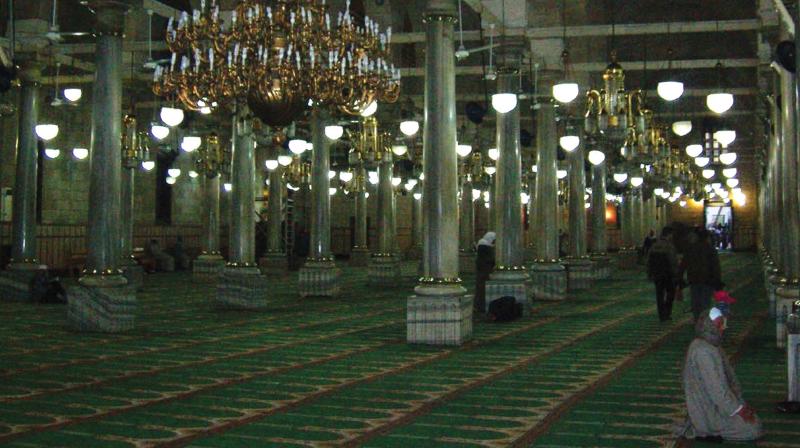First Sabarimala, then mosques
The times, they are a-changing. Change or change will overwhelm us. This is the history of radical reforms and revolutions.

Today we have a peculiar situation where Muslim women can go to Makkah, but they can’t enter the neighbourhood mosque. Why? Because it’s a centuries-old tradition and the Muslim brothers are in no mood to change anything. The Muslim sisters don’t dare question it either because they’re not trained to raise demands. So when will the scenario change? When someone like V.P. Suhara, who founded progressive platform Nisa, goes to the Supreme Court, perhaps. She certainly has a point when she says Prophet Mohammed did not prohibit women’s entry in places of worship, even during their periods.
It’s well known, that Ayesha, wife of the Prophet, PBUH, delivered sermons at the mosque in Medina and rode to battle against Ali, the son-in-law of the Prophet, in what is known as the Battle of the Camel. Mohammed’s first wife Khadija was a businesswoman par excellence. And she was powerful enough to propose marriage to a young and handsome Mohammed several years her junior. Remember the super-hit song “Manikya malaraaya poovi” that was immortalized by a woman’s wink! Well, Arabia in the seventh century wasn’t so bad after all. And Islam was intended to reform the status quo. It is 21st century India we need to worry about now.
Ayan Hirsi Ali, Somalian-born US citizen, writer, speaker and former Dutch Parliamentarian, has been consistently saying that Islam needs reformation. And she has been receiving death threats for years. Her first book ‘Infidel’ is a masterpiece. I’m pretty sure that what she says today the majority of Muslim women are going to say tomorrow.
My first encounter with a mosque was in Maharashtra at the dargah of Sufi saint Qamar Ali. I witnessed a miraculous phenomenon where a single large stone placed outside the mosque suddenly levitated when eleven index fingers (of 11 men) were placed beneath it. I watched spellbound as it rose up above their heads and landed with a thud. The act was repeated again and again by different men - and every time the stone flew up in the air. No single individual was able to lift the stone. Women were not allowed to touch it. Or enter the mosque. Qamar Ali answers all prayers, I was told. On my next visit I brought my brother to check out the wondrous stone. He too felt it was nothing short of a miracle. Does Islam believe in miracles? It does in neighbouring Pakistan, where the Sufi dargah of Mast Qalandar, is world-renowned. But terrorists engineered a big blast a few years ago and killed many devotees.
Today mosques in many parts of the world welcome women. At the grand mosque in Abu Dhabi the only condition is that you’ve to wear the abhaya. The guard took one look at my full-sleeved kurta and decided I was decent enough to be admitted without the abhaya. “Just cover your head with your dupatta and go inside,” he told me.
In India too there are liberal mosques which don’t exclude women. The Gol Gumbaz and Jamia Masjid in Bijapur, Karnataka are some examples. I’ve visited mosques in Alexandria, Egypt and Casablanca, Morocco, and women were not barred. So what’s special about Islam in Kerala? And no, I don’t know the difference between Sunnis and Shias and Salafis and Wahabis and other denominations. To me all are humans, period.
Last month I went to Hazratbal shrine in Srinagar, Kashmir, which supposedly houses a hair of the Prophet’s beard. Here too women were on the outside and men inside. Interestingly, Indian Muslims have borrowed some habits from their Buddhist and Hindu brothers of clinging on to hairs and teeth of their holy men.
